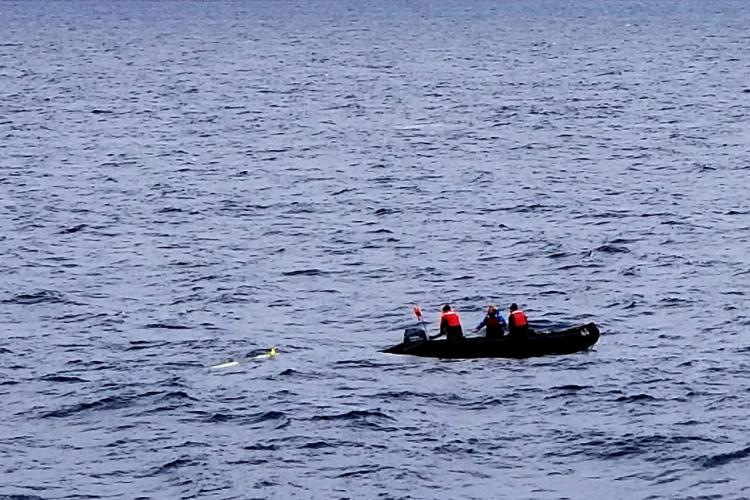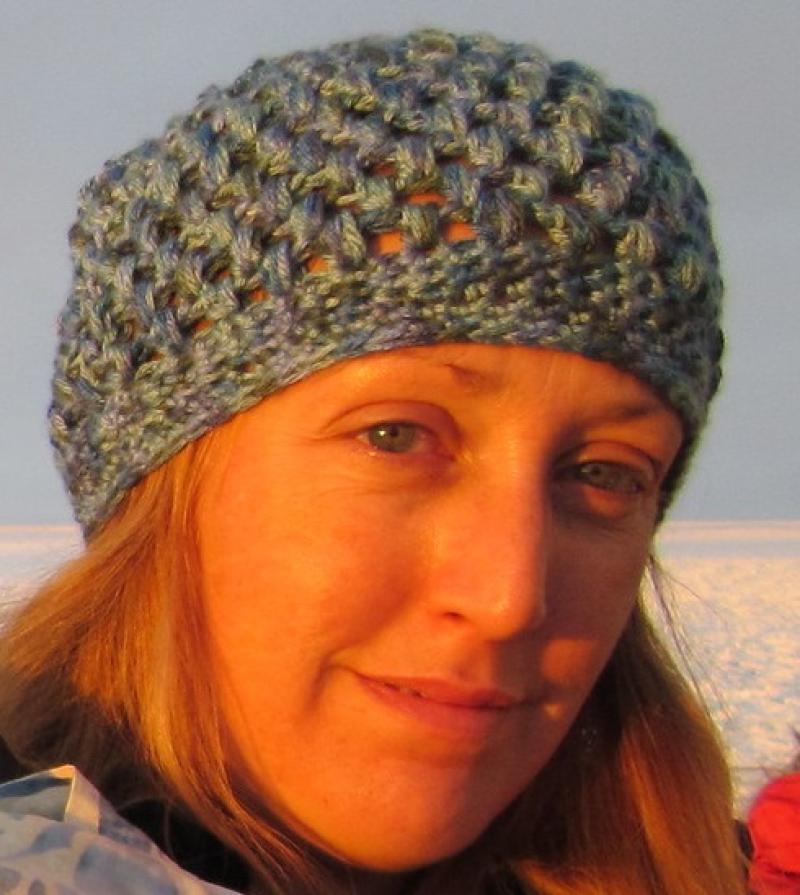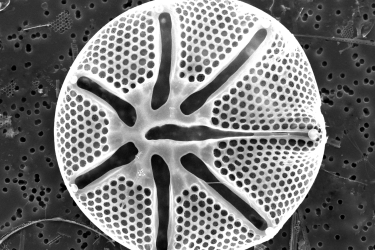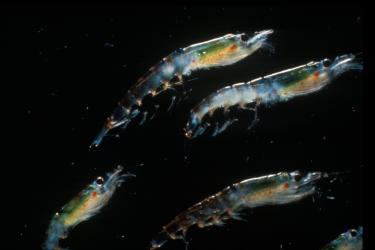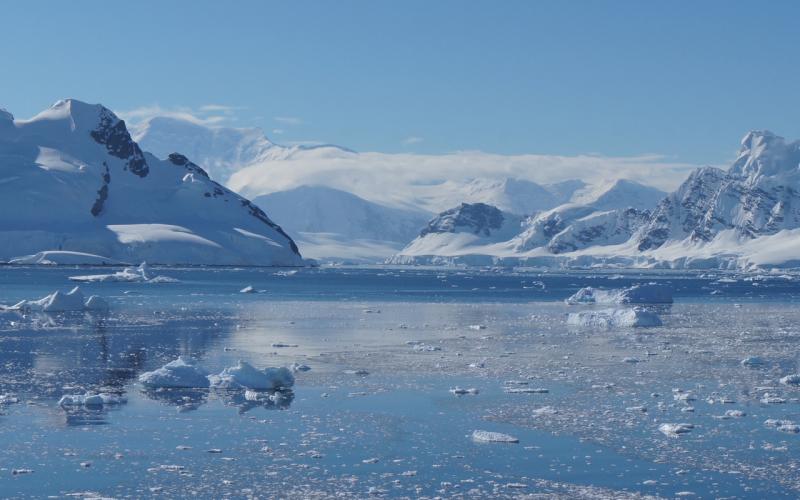We successfully recovered all three gliders around 6 a.m. last Thursday. I’ve been imagining writing this sentence since the gliders were deployed 98 days ago. I pictured it ending with a bunch of exclamation marks, but now that it's reality, I don’t feel the excitement I thought I would.
When we recovered the gliders last year, the glider team was overwhelmed with joy and relief. We were up all night texting each other like crazy. I went to bed at 4 a.m. and got up at 6 a.m. to go to work because I wanted to celebrate with my coworkers. We pulled off what we thought was a long shot: we proved we could get the same data with gliders as we could with ships, all without losing any gliders.
When we recovered the gliders this year, it felt like any other day. I got up a little earlier than normal but slept well the night before. I texted just a little bit with the glider team as the gliders were brought onto the ship. After the recovery, I ate some breakfast and took a shower. I went to work and … worked. My co-pilot and I went out to lunch and tried to celebrate, but the mood was mellow.
What was different?
Okay, this wasn’t our first deployment, but it was our most challenging. We had never deployed three gliders at once, let alone for more than three months. Maybe expectations were different. Last year, no one had any expectations for us. Our success was a happy surprise. But this year, since we had succeeded once, we were just expected to succeed again. So, when we did, it wasn’t a big deal.
But I think it’s more than that. When we’re on a research vessel in Antarctica, science is our lives. We are laser-focused and immersed not only in the beauty all around us, but in our research mission. The rest of the world doesn’t exist. But when we pilot the gliders in Antarctica from our offices and homes in San Diego, we arrange our lives around science. I have thoughts like, “Okay. All three gliders are diving for at least an hour. I can run quickly to the grocery store.” Eventually, gliders become background noise—we know they’re there and we deal with them when they complain, or when they need new instructions. Otherwise, they fade into the patterns we follow every day.
That must be it: gliders have become … routine. Just part of the job. I suppose that’s good. The more routine gliders are, the less anxiety they cause. But that also means they generate less excitement. I want that excitement back.
So, I’ve decided to make a list of everything that went right this season. I hope that seeing our accomplishments written down will bring back that first-season giddy feeling.
Things That Went Right This Season:
- One of the gliders we deployed this season was a “Frankenglider.” The day before we shipped the gliders to Chile last September, two of our four gliders weren’t working properly. We built a new glider out of the working parts of the two broken gliders. We had no idea if it would work, but it did.
- One glider malfunctioned less than a day after it was deployed. Because the ship was still close, we recovered it, figured out the problem, fixed it, and redeployed it. It never malfunctioned again.
- We had gliders abort their missions seven times throughout the deployment. Three of those times were for reasons we’d never encountered before (a fin leak, a pitch motor stall, and a low battery voltage). But each time we figured out how to fix the problem quickly and get the affected glider diving again.
- All three gliders got stuck in crazy currents this year that blew them way off their planned tracks. Last year, if I had to catch a glider at the surface and change its track quickly before it dove again, I got so nervous. I threw up twice! This year, I did it all the time to guide the gliders back on course. I kept my head out of the toilet every time.
- This year, no one accidentally flew a glider into an iceberg, like we did last year. A few times.
- Our entire field program overcame many obstacles this season, starting even before we shipped the gliders to Chile. We had only two months to prepare and test the gliders, which isn’t long when there’s so much to do. Yet despite every setback, we succeeded. Three gliders are safely on a research vessel and headed back to Chile right now, thanks to amazing teamwork.
Yep, that helps. I feel more giddy now.
